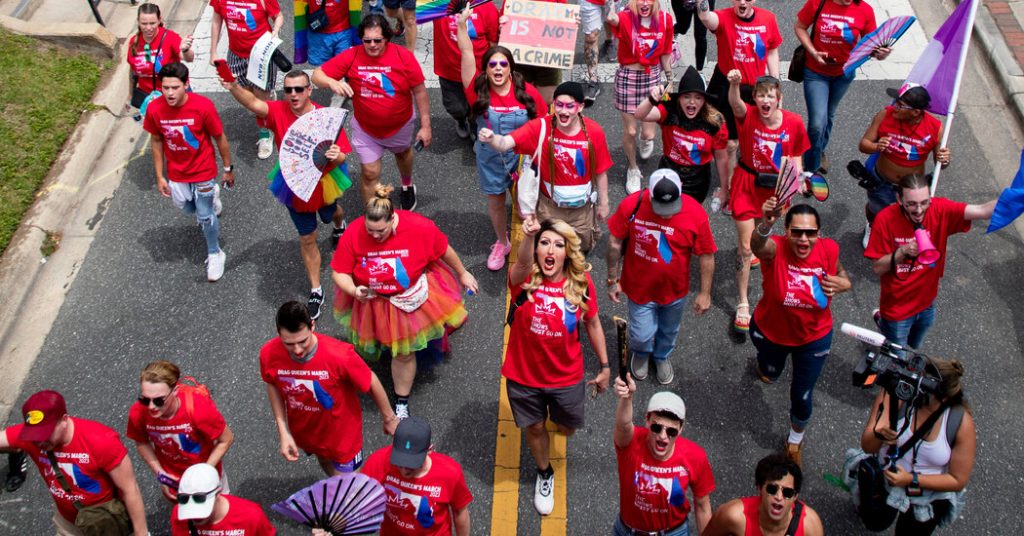The Canadian government is warning LGBTQ travelers to the United States that they could be affected by a series of recently passed state laws that restrict transgender and gay people.
Global Affairs Canada, the foreign affairs department, added a brief notice Tuesday to a long list of travel warnings involving the United States and which already included warnings against armed violence and terrorism.
“Some states have adopted laws and policies that may affect 2SLGBTQI+ people,” the advisory reads. “Check relevant state and local laws.” (The beginning of the Canadian government’s acronym, “2S,” stands for Two-Spirit, an Indigenous term for a person with a male and female spirit.)
Jérémie Bérubé, a spokesman for the department, said in a statement that the change was made because “some U.S. states have passed laws banning drag performances and limiting the transgender community’s access to gender reaffirming care and participation in sporting events” since the beginning of this year. The warning did not name specific states.
He added that, like all travel advisories, this one was the result of “a thorough analysis of various sources of information, including consular trends observed by Canadian diplomats on the ground.”
Mr. Bérubé did not respond to a question about whether Canadian travellers had sought help from Canadian diplomats because of the state's recent LGBTQ legislation.
The measures taken by state legislators, especially in Floridaaimed at restricting LGBTQ rights have received particular attention in the Canadian media, as have increase in hate crimes directed at this community. The Human Rights Campaign calculated that 520 legal texts Measures aimed at limiting or removing LGBTQ rights have been introduced in state legislatures this year, with 70 of them passing.
Helen Kennedy, executive director of Egale Canada, a Toronto-based LGBTQ rights group, said that while her organization had not heard of Canadians being affected by the state's measures, she anticipated that some would inevitably be affected by them.
“We applaud our government for taking this action,” she said. “It sends a clear message that even our closest neighbour can potentially be a hostile force against our community.”
In Canada, there is much less political momentum to roll back LGBTQ rights, which are strongly protected by the courts.
For nearly two years, the Atlantic province of New Brunswick had a policy that required teachers to use students' preferred names and genders. Premier Blaine Higgs changed that policy to require teachers to obtain parental permission If the child is under 16, however, the measure has not received widespread support. Several members of the legislature, including some cabinet ministers, have left Higgs' Progressive Conservative caucus in protest. Despite the backlash, other Conservative politicians have suggested they will follow New Brunswick's lead.
While the overall risk assessment for travel to the United States remains at the lowest level, the country now joins many other countries that the Canadian government is warning LGBTQ travelers about, often in much stronger terms than the United States. The new advisory includes a link to a page of general safety tips for the community regarding international travel.
Florida and some of the other states that have passed anti-LGBTQ laws and policies are popular tourist destinations for Canadians. Kennedy said the legislation is causing more LGBTQ Canadians to ask themselves if they are considering travelling to such a country: “Is this the best place to spend my money?”


